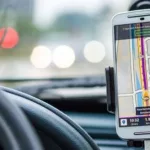Lotteries have been helping governments finance major public works projects for hundreds of years. Some say the Great Wall of China was funded by keno slips during the years of the Chinese Hans Dynasty. During the Middle Ages, Belgian towns used lotteries to raise funds for town fortifications.
The past of lottery play is quite colourful, but what about the future? Lottery jackpot records continue to fall, as evidenced in the $1.58 billion prize awarded by the American Powerball lottery in January 2016, and apparently the sky’s the limit. Lottery play used to be limited to those living in, or visiting, the places where lottery tickets are sold. Today it is possible to buy tickets for the world’s major lotteries at theLotter, a lottery ticket courier service which purchases physical tickets on behalf of its customers.
The technology of lottery play is also evolving. The advent of computers certainly introduced revolutionary changes to the industry. Lottery software supports retail point-of-sale, manages game inventories, and analyses how players interact with lottery games. While the technology to purchase tickets online already exists, legal restrictions and regulations limit what is actually available to lottery customers.
Using a smartphone to play the lottery seems like a match made in heaven. For many customers, buying lottery tickets often comes as an impulse purchase, something very easy to do when your mobile phone is available at all hours of the day and night. Purchasing tickets through mobile apps helps customers avoid the lines at retailers but surprisingly, it is not always possible to buy those tickets with your phone. Not yet, anyway.
The National Lottery in the UK offers an app to check lottery draw results, and another full app that allows actual lottery play. As of now, it is possible to download the full app only on the National Lottery website as real money lottery apps are not allowed in the Google store. Mobile lottery play in the UK has been available for some time, but you must be physically located there in order to purchase tickets.
Another country leading mobile lottery play is surprisingly Mexico. Mexican customers have been using their phones to buy lottery tickets since the beginning of 2010. Buying tickets and seeing draw results are made possible by sending an SMS.

What about the United States, home to the biggest lotteries in the world? While Powerball and Mega Millions tickets are available throughout most of the states, there is no central organization available to enable their sales online. This leaves online play, and the introduction of mobile apps, to the individual states.
For example, you can use the official Illinois Lottery app to buy official tickets for the Powerball, Mega Millions, Lotto, and other lottery games. Winnings up to $600 are deposited directly into your Illinois Lottery account. You must be physically located in the state of Illinois to use this app. A similar restriction limits play on the app offered by the Georgia Lottery. It allows lottery play only in Georgia.
Other state lotteries proudly offer mobile apps, but customers cannot use them to actually purchase lottery tickets. The California Lottery, for example, declares that its app puts the “lottery at your fingertips”. While you can use the app to check draw results and jackpot amounts, you cannot use it to actually play the lottery. Similarly, the Maryland Lottery mobile app gives you that as well as information about nearby retailers that sell lottery tickets, but ticket purchases are not available.
It is quite clear that official lotteries around the world are quickly moving to an online, mobile environment. Along with the increasing popularity of lottery betting, it is possible that the future of lotteries will be entirely digital. One day soon, paper lottery tickets may be a thing of the past.








